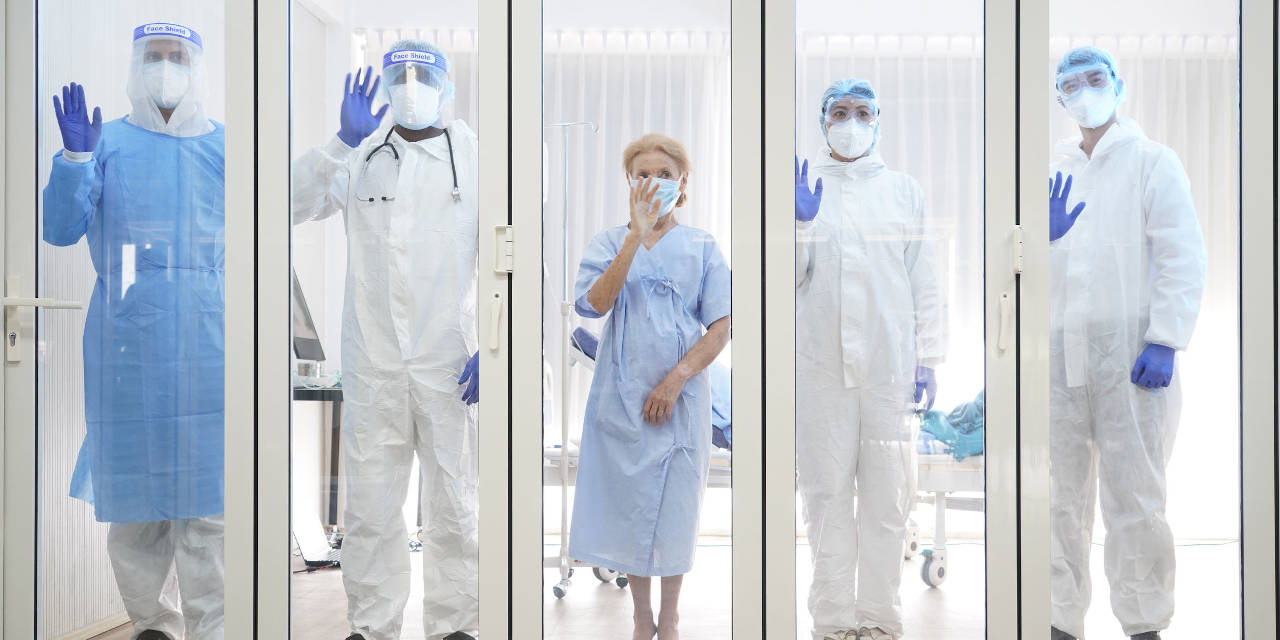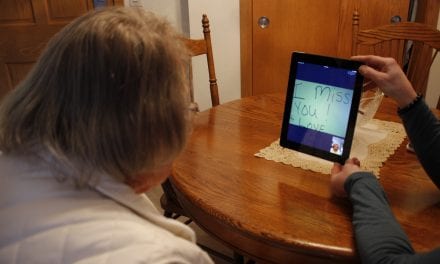By Susan Saldibar
Amid the tremendous loss of lives related to COVID, we crave stories of older adults who actually recover. I remember a great video a while back of a 90-year-old patient, once on a respirator, leaving the hospital, thumbs up and smiling. Really made my day. But, as excited as we get about these COVID recovery stories, we know that, especially for older folks, COVID can leave an ugly track of health issues in its wake.
Impact After Recovery
How COVID impacts the body depends on lots of things; overall health, underlying conditions, and what organs are involved. There is still some mystery about these pesky long term affects. But, how they impact the quality of life may depend on the type and quality of the therapy they receive.
Trisha Barker, national clinical director for Aegis Therapies (a Senior living Foresight partner) has written extensively on the topic of COVID-related long-term health issues, in an effort to bring more clarity to the somewhat murky information we have to date. Some of these issues are as follows:
- Organ damage. This includes not only lung scarring but damage to other organs, including the heart, brain, and blood vessels. A COVID survivor may, thus, have an increased risk of stroke, heart failure, and abnormal blood clotting.
- PICS (Post Intensive Care Syndrome). Since many of your residents who contract COVID will end up in the ICU, PICS is a real possibility. It manifests itself in weakness from degenerated nerves and muscles. Individuals may also suffer from associated issues such as poor nutrition, other infections, and wounds. PICS symptoms need to be recognized quickly and treated appropriately.
- PTSD (Post Traumatic Stress Disorder). Being hospitalized with COVID for an older adult is agonizing. Not being able to have loved ones close by, and dealing with hospital staff wearing PPE does little to calm anxieties. Depression and sustained anxiety can have a damaging impact on older adults. As a result, upon being released, a patient can present with PTSD symptoms. Again, they need to be recognized as such and handled with care.
The Important Role of Therapy
Trisha has also written about the increasingly important role of therapy to help mitigate some of these long-term issues and keep senior living residents as healthy, post-COVID, as possible. Here are some of her recommendations for physical, occupational, and speech therapies:
Physical Therapy:
- Address muscle weakness to prevent falls and improve the ability to sit, stand, and walk.
- Provide wound care for pressure ulcers, often a result of poor nutrition or immobilizations.
- Deliver a respiratory assessment, along with techniques for lung-clearance and respiratory strength training.
- Address lingering pain through non-pharmacological techniques.
- Develop an exercise program that safely addresses the cardiovascular limitations of a person while still building or sustaining muscle strength.
- Create a home exercise program to relieve stress and anxiety and the opportunity to maximize functional independence.
- Restore community activities with compensatory techniques or adaptations as needed.
Occupational Therapy:
- Assess for and provide appropriate equipment needed to make a person safe, increase their ability to function, avoid pressure ulcers, and compensate for weakness.
- Restore strength to weakened muscles to improve the ability to perform Activities of Daily Living (ADLs).
- Deliver a cognitive assessment and develop a functional cognitive stimulation program.
- Provide a psychosocial assessment and create an individualized activity program to improve psychosocial well-being.
- Train on energy conservation techniques.
- Address negative behaviors related to cognitive declines and mental health issues.
Speech Therapy:
- Address respiratory and swallow coordination that can be affected by breathing issues.
- Provide voice assessment and treatment for improved communication, which may have been impacted due to intubation or mechanical ventilation.
- Analyze the causes of and treatments for nutritional decline and weight loss.
- Assess and treat for cognitive deficits impacting communication. Including the ability to follow directions, expressing wants and needs, problem-solving, and communicating virtually with loved ones.
- Evaluate mental health issues and develop strategies to improve communication – such as the ability to communicate pain, anxiety, or depression – and decrease negative behaviors.
What’s Your Plan?
Colder weather will bring more COVID cases. So now is the time to look at how you are optimizing COVID recovery care for your residents. What is your plan? What role does therapy play? Are your therapists tuned in to your residents’ pre-COVID health issues so that they can recognize the impact and adjust their therapy accordingly?
These are important questions to ask your team. Residents who have contracted COVID have gone through enough. They need and deserve to recover as much of their physical and cognitive health as possible. Make sure your therapists are part of that recovery.
By the way, Aegis Therapies has a great resource site, which you can access here.
For more information about Aegis, you can visit their website.







